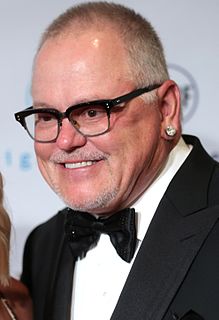A Quote by George Soros
Markets are imperfect. So you do need regulation, knowing that the regulators are also human.
Quote Topics
Related Quotes
Regulation has gone astray. . . . Either because they have become captives of regulated industries or captains of outmoded administrative agencies, regulators all too often encourage or approve unreasonably high prices, inadequate service, and anticompetitive behavior. The cost of this regulation is always passed on to the consumer. And that cost is astronomical.
I started out by viewing the marketplace as a cruel place, where you need intervention by government and lawyers to protect people. But after watching the regulators work, I have come to believe that markets are magical and the best protectors of the consumer. It is my job to explain the beauties of the free market.
To invest successfully, you need not understand beta, efficient markets, modern portfolio theory, option pricing or emerging markets. You may, in fact, be better off knowing nothing of these. That, of course, is not the prevailing view at most business schools, whose finance curriculum tends to be dominated by such subjects. In our view, though, investment students need only two well-taught courses - How to Value a Business, and How to Think About Market Prices.
In the field of medicine, if you're sick you need a doctor. A doctor has already studied how to deal with your ailments, and human beings are imperfect. There any many ailments of the psyche and the soul that need to be treated, and the serious murshid, or spiritual master, is also really a doctor of the soul: a person who can heal the wounds of the soul in the same way as a medical doctor takes care of our physical problems.

































